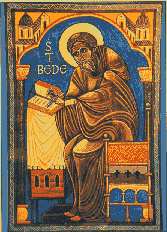Welcome to the Holy Women, Holy Men blog! We invite you to read about this commemoration, use the collect and lessons in prayer, whether individually or in corporate worship, then tell us what you think. For more information about this project, click here.

John Calvin was the premier theologian and leader of the Reformed wing of the Protestant Reformation.
Calvin was born in France in 1509 and reared in a devout Roman Catholic family. He excelled at his studies and by the age of 19 he had earned a master’s degree. His father wanted him to study law, which he did for a time, but Calvin’s own passions were theology, languages, rhetoric and the literary sciences. Around 1534, he underwent a major conversion experience, left the Roman Church, and devoted the rest of his life to the evangelical cause of the Protestant Reformation.
Calvin’s greatest work is The Institutes of the Christian Religion, first published in 1536, but repeatedly updated and revised until its final edition in 1559. Unlike Luther and Zwingli, whose theological writings were “situational” in the sense of addressing particular conflicts, Calvin’s Institutes were a more systematic treatment of the whole of Reformed evangelical theology. By taking up his reforming agenda fifteen years after Luther and Zwingli, Calvin was able to write in a more reflective and considered mode, beyond the crossfire and immediacy of the early years of the Reformation. Standard themes in Reformed theology—the sovereignty of God, election and predestination, the true nature of the Christian life, and the proper understanding of the authority of Scripture—even now bear strong Calvinist qualities. The Institutes continue to be an accessible window into the Reformed theology of the sixteenth century.
Calvin was also interested in theological principles controlling the civil state by imposing moral discipline on the people. His efforts in Geneva to establish such a theocratic moral code enjoyed periods of modest success but were met with resistance as well. Positively, Calvin’s theocratic principles of public life led to the creation of hospitals, care for the poor, orphans, widows and the infirm, provisions for better sanitation, and the creation of new industries to employ the people. Calvin’s Geneva was also a safe haven for John Knox and other Protestants of the Reformed tradition during times of unrest and exile.
Collects
I. Sovereign and holy God, who didst bring John Calvin from a study of legal systems to understand the godliness of thy divine laws as revealed in Scripture: Fill us with a like zeal to teach and preach thy Word, that the whole world may come to know thy Son Jesus Christ, the true Word and Wisdom; who with thee and the Holy Spirit liveth and reigneth, ever one God, in glory everlasting. Amen.
II. Sovereign and holy God, you brought John Calvin from a study of legal systems to understand the godliness of your divine laws as revealed in Scripture: Fill us with a like zeal to teach and preach your Word, that the whole world may come to know your Son Jesus Christ, the true Word and Wisdom; who with you and the Holy Spirit lives and reigns, ever one God, in glory everlasting. Amen.
Lessons
Psalm 119:1–8
Joel 2:1–2,12–14
Romans 9:18–26
John 15:1–11
Preface of Trinity Sunday
From Holy, Women, Holy Men: Celebrating the Saints © 2010 by The Church Pension Fund. Used by permission.
* * *
We invite your reflections about this commemoration and its suitability for the official calendar and worship of The Episcopal Church. How did this person’s life witness to the Gospel? How does this person inspire us in Christian life today?
To post a comment, your first and last name and email address are required. Your name will be published; your email address will not. The first time you post, a moderator will need to approve your submission; after that, your comments will appear instantly.









